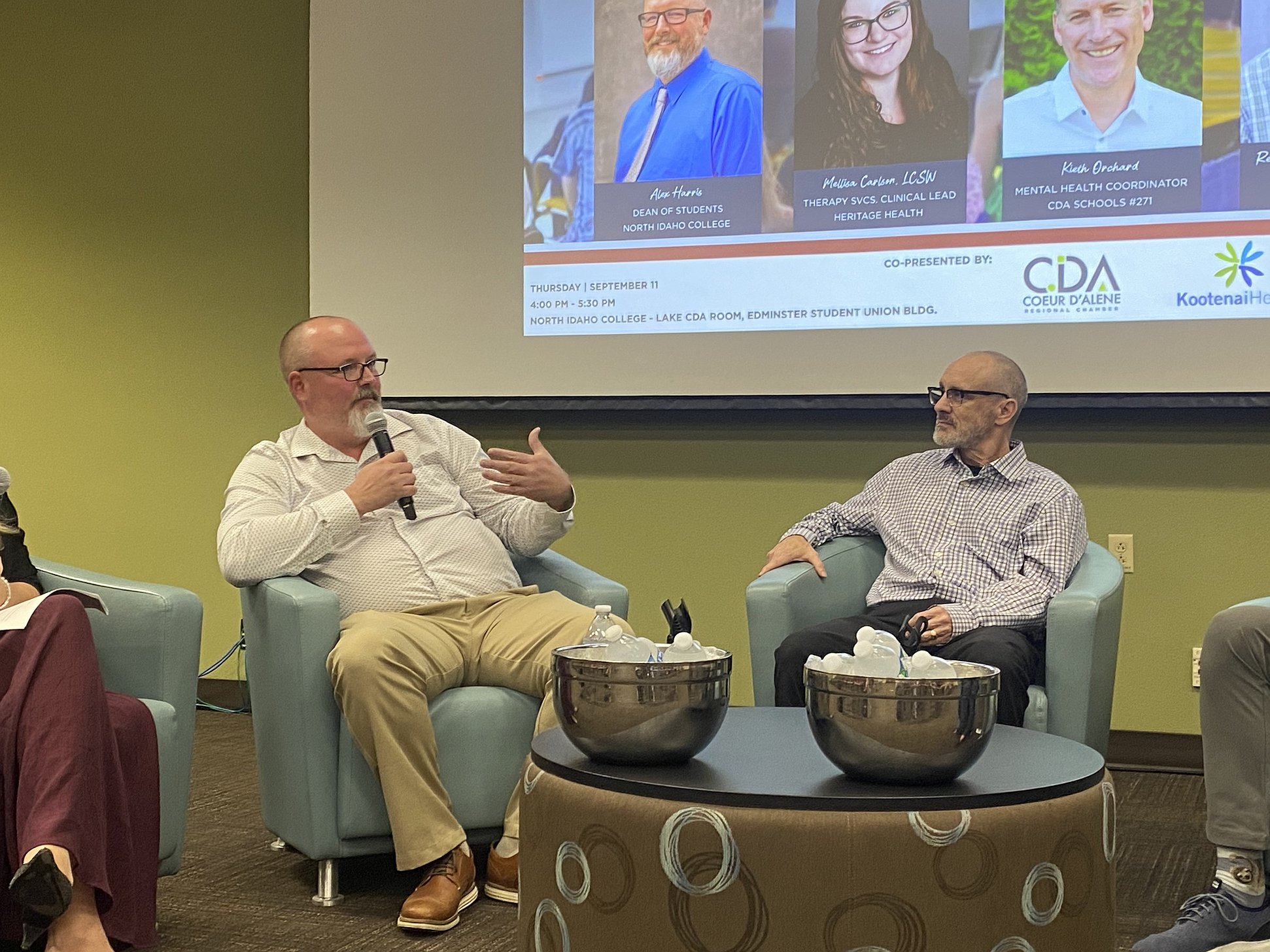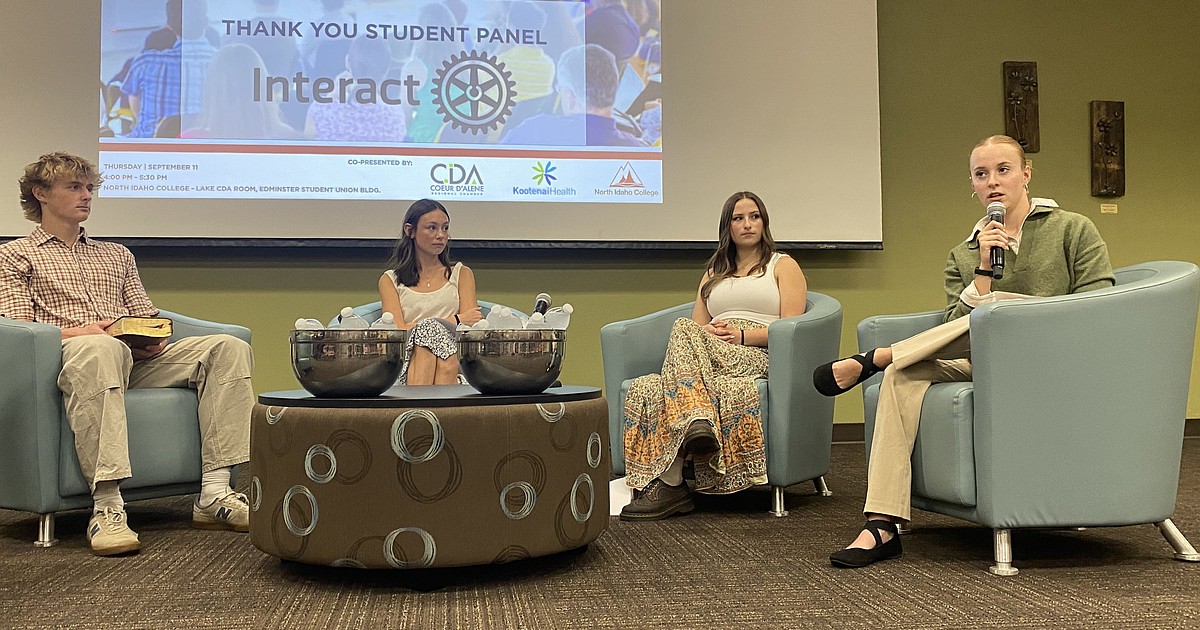COEUR d’ALENE — When Maddie Jereczek made the transition from middle to high school, she didn’t expect much to change.
However, she found herself struggling. She had to move to an online format for school as things got worse and was eventually diagnosed with anxiety and depression.
“It wasn’t one event that caused my depression,” Jereczek said. “It was many little factors that broke me down.”
It took Jereczek about a year to fully understand what was going on with her mental health — and when she finally did return to Coeur d’Alene High School, she was empowered to prioritize her mental well-being in a way she wasn’t before.
“I was so worried about fitting in and having a big group of friends that I had lost myself,” Jereczek recalled.
Jereczek, along with three other students, shared her story in front of a few dozen people during Thursday’s panel on youth mental health at North Idaho College.
The students highlighted traditional stressors that have an impact on mental health, such as schoolwork and fitting in, in addition to relatively new issues, including cyberbullying.
“Cyberbullying doesn’t stop when you get home … it can really take its toll,” said junior Emmie Nail.
Junior Addison Wallace added that becoming comfortable with asking for help allowed her to better cope with her generalized anxiety disorder.
“It’s important to communicate what’s going on, even if all you can say is, ‘I don’t know what’s going on,’” Wallace said.
Following the student panel, mental health experts weighed in on conditions impacting youth mental health.
Currently, each of Idaho’s 44 counties is considered to have a shortage of mental health providers and ranks last in the nation for number of psychiatrists per capita, according to Renard Alotta with Kootenai Health.
A youth in crisis most often ends up in the emergency room and is often discharged following an evaluation, Alotta added.
Even so, prevention most often starts outside inpatient treatment — with open conversations with youth about mental health, he emphasized.
“I think it starts just like this,” Alotta said, gesturing to the audience. “We want getting help to become a normal part of growing up.”
NIC dean of students Alex Harris agreed.
“I’m amazed every week by college students who can talk about these things with someone they just met,” Harris said. “There’s hope in that.”
 North Idaho College dean of students Alex Harris speaks during a panel on youth mental health Thursday at NIC.
North Idaho College dean of students Alex Harris speaks during a panel on youth mental health Thursday at NIC.

